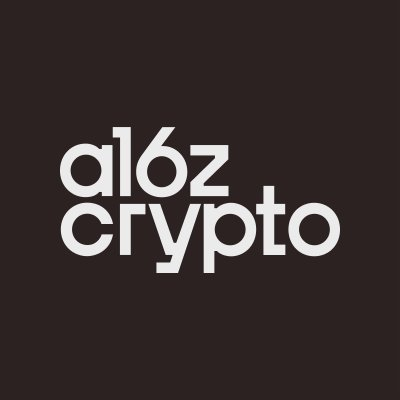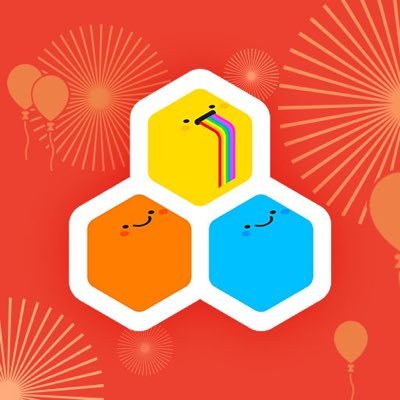Pahdo Labs: How the UGC game platform led by a16z interprets "AI + Web3"?
Author: Luccy, BlockBeats
Editor: Jaleel, BlockBeats
"Oh, I first got into cryptocurrency because I started playing Axie Infinity."
Many people mention their entry into the space like this, transitioning from GameFi to the metaverse or cryptocurrency seems to be a common narrative. Undoubtedly, within this field, Web3 games are one of the most exciting categories, serving as an important gateway for people to understand the technology and its functionalities.
As GameFi continues to evolve, our understanding of the metaverse will also be enhanced, and GameFi is undoubtedly the window to the metaverse. Since the term "metaverse" was coined in the 1990s, there has been much discussion about it, especially during the pandemic and after Facebook rebranded to Meta. The blockbuster movie "Ready Player One," which exploded in popularity in 2018, also drew many Web2 eyes to the metaverse.
A project analysis report on institutional fund investments in the crypto industry from May to August 2022 pointed out that, in terms of investment direction, funds in the market are more willing to invest in application layer projects focused on games and NFTs during the bear market. In today's bear market phase, a16z has once again turned its attention to the metaverse market, leading an investment in the metaverse platform development studio Pahdo Labs on September 12.
Related Reading: "Unveiling Bear Market Investment Preferences in the Primary Market: Games, NFTs, and the Metaverse"
According to Pahdo Labs' official statement, this is a Series A financing round, with a total financing amount of $15 million. In addition to the lead investor a16z, other participants include Pear VC, BoxGroup, Long Journey Ventures, Neo, and Global Founders Capital, along with $2.5 million in seed funding raised from angel investors such as Kevin Hartz, Mark Pincus, and Cyan Banister. Currently, Pahdo Labs is set to launch a player-built virtual world game called Halcyon Zero.
Why is Pahdo Labs Focusing on UGC?
One of the key features of Web3—"immutable ownership"—is almost tailor-made for user-generated content (UGC) creators in the gaming field. a16z's general partner Jonathan Lai has said, "My personal hypothesis about web3 is that, in the long run, it will actually become a part of every game."
Since the number of Web3 users is far smaller than that of Web2, projects must strive to convert users into creators, increasing user engagement with the project and establishing a consensus to hold onto NFTs or tokens without selling. In Web2, players cannot determine that their created UGC belongs to them as digital assets through any consensus, nor can they automatically share profits based on contracts. Web3 transforms creators' UGC works into digital assets within Web3 games through NFTs, which have copyrights and can share profits. As long as the works are good, there is no fear of not making money, so Web3 projects should lean towards a UGC model.
Related Reading: "Prospects for the Web3 Metaverse Track (Part 2) - Discussing the Current State of the User-Generated Content (UGC) Sector"
Pahdo Labs' plan is to create an anime-style role-playing game and UGC platform, which is also one of the reasons a16z chose Pahdo Labs.
a16z's $600 Million Game Fund
It is well known that the renowned venture capital firm a16z has a dedicated $600 million game fund and a $4.5 billion cryptocurrency fund. After a decade of preparation, a16z launched its first game fund, Games Fund One, in May last year. Games Fund One firmly believes that games will play a key role in defining how we socialize, entertain, and work in the next century, and it believes that the gaming industry itself is worth $300 billion in the long run.
Games Fund One has three main investment themes. The first is game studios, as they believe that the best games today are continuously updated online services where players become an integral part of the game through multiplayer and UGC. These "games as a service" have become rich interactive social networks, and friendships formed in games are as meaningful as those formed face-to-face. As gaming becomes the primary way people spend their time, Games Fund One believes that some of the most innovative consumer companies will be built around player communities, so they invest in games x consumers.
The last theme is infrastructure. As games evolve into virtual worlds and online services, the demand for tools and services needed to build great games is surging. This infrastructure is not only important for the games themselves, but Games Fund One also believes that the upcoming metaverse will be constructed by game companies using gaming technology. From content creation to multiplayer support, to virtual economy management and real-time operations, the gaming industry has solved many of the problems that need to be addressed to create the metaverse.
Andrew Chen, the manager of Games Fund One, commented on the fund's 2022 fundraising Deck, saying, "If I were writing this Deck today and talking about why now is the time to invest, I would definitely write 'AIAIAIAI' and include AI as a new investment theme."
In a16z's view, software and tools built for gaming will become the building blocks of the metaverse. Andrew claimed that Games Fund One focused primarily on game studios, Web3, and infrastructure last year, and will continue to maintain this focus this year while starting to genuinely shift towards the field of artificial intelligence. Additionally, Games Fund One encountered over 100 AI x Games companies in just the first quarter, and by 2023, 80% of the game fund's investments will have a significant AI component—reshaping core gameplay or creating tools.
Related Reading: "Interpreting a16z: $600 Million Game Fund Fundraising Deck, What Makes Games Attractive?"
At the end of November last year, a16z led the investment in the metaverse project Createra, which positioned itself as "a UGC gaming platform with over 30 million gamers/pixel content creators." Createra aims to build a community-managed "metacity," where players can explore various types of game worlds or artworks created by creators, and creators can use the tools provided by Createra to create and sell in its marketplace.
Related Reading: "Createra: Free Mint to 1.75 ETH, a16z Leads New Metaverse Land"
According to its official statement, Createra has accumulated nearly 15 million Gen Z users and 500,000 creators in Asia, with its development focus primarily on Gen Z. In the project, Genesis land is the main core asset, which will determine the distribution of subsequent rewards and assets as well as exposure opportunities within Createra.
In March this year, a16z led an investment in CCP Games, which is developing a new AAA game set in the EVE universe. Since 2018, 50 million EVE players have created over 27.6 billion items, and the EVE community has established a rich ecosystem of third-party tools and applications supported by APIs.
Building UGC with Godot
Pahdo Labs founder Daniel Zou stated in an interview with GamesBeat that their goal is to allow players to build their own virtual worlds using AI tools and procedural generation, fundamentally changing the anime RPG genre.
Pahdo Labs prioritizes player creativity, making user-created maps and game modes an integral part of the story and overall player experience. The developers hope that AI tools and procedural generation can lower the barriers to creating visually stunning anime-style worlds. Therefore, Halcyon Zero chose the Godot engine, which is simpler compared to UE and Unity, allowing games to run as long as the files meet the specifications.

Godot is a free and open-source game engine for both 2D and 3D, developed by thousands of contributors from around the world. Users can download and use it for personal, non-profit, commercial, or any other purposes for free, and can modify, distribute, redistribute, and remix it freely for non-commercial or commercial purposes. Using Godot, developers can create various types of games for any platform without usage restrictions.
The Godot engine provides a comprehensive set of commonly used tools, allowing users to focus on making games without having to reinvent the wheel. Games can be exported to multiple platforms with one click, including major desktop platforms (Linux, macOS, Windows), mobile platforms (Android, iOS), as well as web-based platforms and consoles.
Godot is centered around object-oriented design, featuring a flexible scene system and node hierarchy aimed at breaking free from strict programming paradigms, providing an intuitive way to build games. On one hand, like nested prefabs, it allows users to aggregate scenes; for example, users can place characters into levels and then drag and drop scenes as their children. These scenes can be weapons, characters, items, doors, levels, or parts of levels, and can inherit usage.

The scene design page of the Godot engine, image source: Godot Engine Documentation
On the other hand, unlike prefabs in other 3D engines, Godot can inherit and extend these scenes. Users can create a wizard and then extend it into other characters. When the character is modified in the editor, the wizard will also update, thus building the project to match the structure of the game's design. Godot's nodes do not work like components in some other game engines; instead, it provides many different types of nodes that mostly work independently of each other. Nodes are part of a tree and always inherit from their parent to the Node class.
 Image source: Godot Engine Documentation
Image source: Godot Engine Documentation
Godot has a dedicated scripting workspace, an animation editor, a tile map editor, a shader editor, a debugger, an analyzer, and the ability to hot-reload on local and remote devices, aiming to provide a complete game development package and a continuous user experience. This is also part of the reason why Godot offers its own programming language GDScript and C#.
GDScript is designed to meet the needs of game developers and designers and is tightly integrated into the engine and editor. It allows users to write code using indentation-based syntax, but it can detect types and provide the auto-completion quality of a static language. It is also optimized for game code with built-in types such as vectors and colors. With GDExtension, users can write high-performance code in compiled languages like C, C++, Rust, or Python without needing to recompile the engine.
In terms of rendering, the number of tools in the 3D workspace is fewer than in the 2D workspace, and users need external programs or add-ons to edit terrain, set animations for complex characters, etc. Godot also provides a complete API to extend the editor's functionality using game code.
Why Does a16z Favor Pahdo Labs?
Jonathan Lai stated that a16z has long been focused on anime topics, believing that the influence and impact of the anime category are growing explosively worldwide. Additionally, Jonathan Lai analyzed that 69% of Gen Z and half of Netflix subscribers watch anime, and anime games generated about $17 billion in revenue in 2022, accounting for nearly 20% of total spending in the mobile gaming industry.
Pahdo Labs plans to democratize anime game creation starting from their first IP, Halcyon Zero. A16Z GAMES general partner Jonathan Lai stated, "We are impressed by Pahdo's execution speed and believe the team has the capability to deliver an incredible next-generation anime RPG platform."
Pahdo Labs and Its Team
In 2021, a group of game developers interested in anime and action role-playing games met online and hit it off, with some even quitting their daily jobs to move to New York and develop multiplayer video games day and night. Daniel Zou is one of them, leading this small team to establish Pahdo Labs in his apartment in Irvine, California.
Before becoming CEO of Pahdo Labs, Daniel was part of the growth team at Robinhood, helping Robinhood increase its user base from 4 million to 15 million, while also working on cryptocurrency, referrals, search engine optimization, international expansion, and product launches. Later, Daniel Zou joined the AI company Anduril Industries as a software engineer. These two work experiences deepened Daniel's interest and skills in various fields such as the metaverse and AI.
In building the early community, Pahdo Labs, like other game studios, attracted millions of views by showcasing the early independent game development process and the lives of these young game developers in their New York office on TikTok. Thus, the gaming niche market has been growing, attracting an audience early in the game development process.
In fact, Daniel's choice of the gaming track is not accidental; his upbringing was filled with various online role-playing games such as "MapleStory," "Runescape," and "Mabinogi." Online virtual worlds provided Daniel with a sense of agency, friendship, and purpose. Therefore, Daniel spent all his time creating his own games, which sparked his early interest in technology and computer science, and the early members of the team were also enthusiastic players of Japanese role-playing games, fighting games, and indie adventure games.
In 2021, inspired by their favorite action games, Pahdo Labs developed a 4-player action role-playing game.
"Creating a world where players have the power to create things of eternal value" is Pahdo Labs' vision. For Daniel, eternal value means lifelong memories and the pride that comes from creating and releasing that creation into the world. Thus, he founded Pahdo Labs to ensure that the next generation can have similarly rich and rewarding online social and creative experiences.
Since then, Pahdo Labs has hired 21 full-time international employees in locations such as New York, Vancouver, Korea, and Berlin, representing a collaboration between tech talent from Boston's Silicon Valley and industry veterans from Riot Games, Capcom, and Electronic Arts. The past three years have been both challenging and rewarding for the Pahdo Labs team, with team members making significant commitments and continuing to work hard to bring their vision to players.
Halcyon Zero
Halcyon Zero is an isometric anime fantasy role-playing game and online game creation platform built on the Godot engine. The game takes place in an ethereal fantasy world centered around a bustling town that serves as a social hub, where players can team up to explore the chaotic wilderness, challenge anime-style bosses, and uncover the secrets behind the chaos.
Halcyon Zero is designed to be a free game, with the official statement indicating that it will primarily monetize through cosmetic-based microtransactions. Blockbeats reminds users that the current monetization paths for blockchain games are not stable enough, leading to longer development cycles for large-scale games, greater complexity, and higher risks. Additionally, Halcyon Zero is still in the game testing application phase, so users are advised to conduct sufficient research and understanding of its built-in economic model before participating in blockchain games.






























